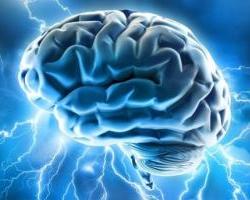If you tend to consider that OCD is a condition caused by the brain’s “habit system” gone haywire, there are some University of Cambridge researchers who agree with you.
A study done at Cambridge showed people with OCD were less capable of pressing a pedal to prevent receiving a mild electric wrist-shock than non-OCD study participants.
The research may indicate those with an OCD diagnosis have an overactive brain habit-system that can interfere with common-sense everyday decisions.
The haywire habit-system explanation for OCD differs from the theory that OCD is a condition brought about by people ruminating or worrying over specific thoughts or fears (obsessions).
The Brain’s Habit System
The OCD study participants who were less able to stop receiving shocks by pressing a pedal had excessive activity in their caudate nucleus, an area of our brain involved in the control of habits.
Earlier research determined that those with OCD have over-active caudate nuclei when OCD symptoms are present. Finding the same heightened caudate activity in the reluctant pedal-pushers of the Cambridge study adds evidence to the idea that OCD compulsions might be a dysfunction in the brain’s habit system.
The investigative team believes misfiring in the habit system may be responsible for psychiatric conditions other than OCD as well, such as binge eating, drug, and alcohol abuse.
“What all these behaviors have in common is the loss of top-down control, perhaps due to miscommunication between regions that control our habit and those such as the prefrontal cortex that normally help control volitional behavior,” said researcher Dr. Claire Gillan. “As compulsive behaviors become more ingrained over time, our intentions play less and less of a role in what we actually do.”
The Two Faces of Habit
Still, we can never say that habit is bad. Through practice or repetition, we cultivate habits that simplify our lives. Driving a car, for example, becomes a habitual activity, and the habit frees our mind to observe what is going on around us while traveling. When we cultivate the habit of regular exercise we improve our health and sense of well-being.
It is when habit stops serving a functional purpose and takes control of our life in maladaptive ways - dominating our behavior - that it becomes a disruptive problem, and a condition that is tough to alter.
“This study emphasizes the importance of treating OCD early and effectively before the dysfunctional behavior becomes entrenched and difficult to treat,” said Professor Barbara Sahakian, researcher.
Source: Science Daily
Photo credit: aboutmodafinil.com / flickr creative commons






